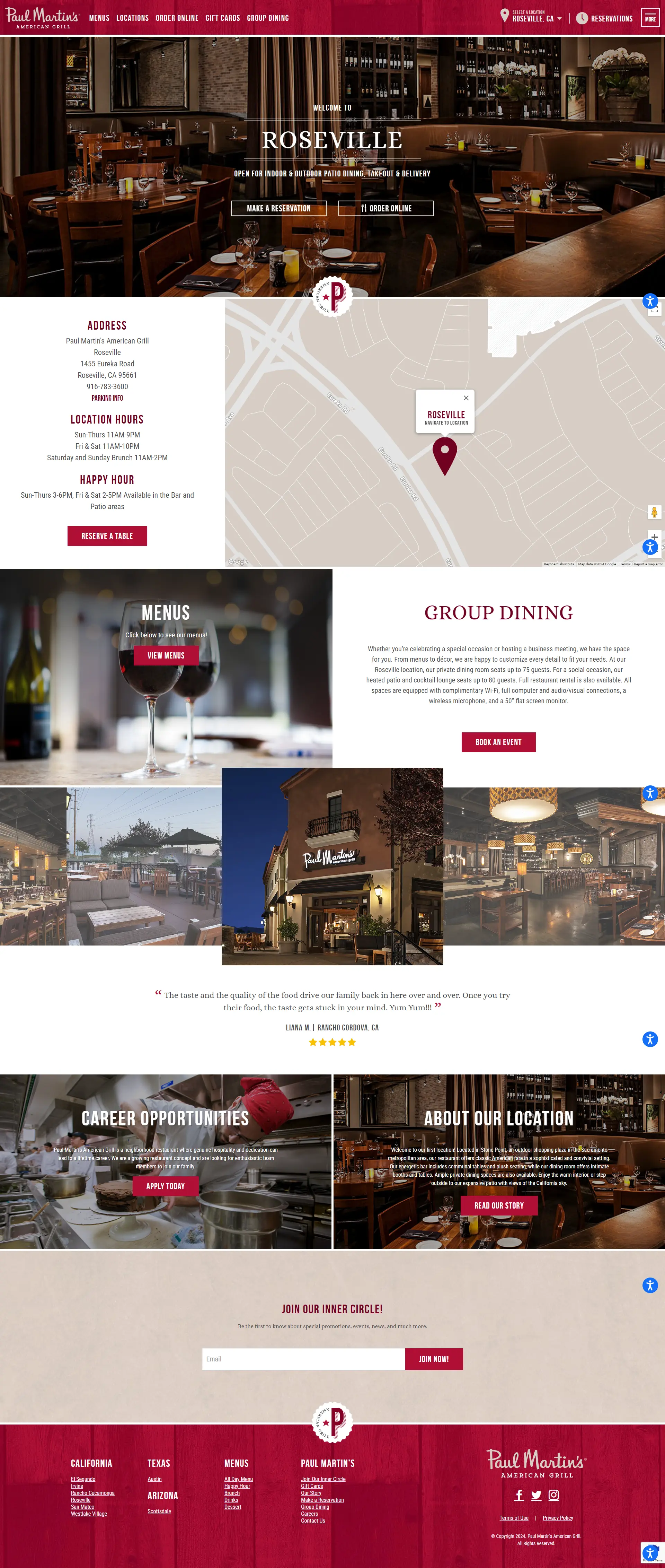Executive Summary
Wix may seem easy to use, but for businesses, WordPress is superior. WordPress offers greater flexibility for integrating essential business tools, better SEO control for higher search rankings, and more scalability for future growth. You also have complete ownership and control over your website. While Wix might be fine for basic websites, serious businesses should choose WordPress for a truly optimized and scalable online presence.
For serious businesses seeking an optimized and scalable online presence, WordPress surpasses Wix.
If you’re just starting your business, you’ll likely end up re-designing your website on WordPress later.
Why Wix Might Not Be the Best Choice for Your Business Website
Wix is a popular website builder, offering an easy drag-and-drop interface and attractive templates. However, when it comes to building a website for your business, Wix presents some limitations that can hinder your online growth. Here’s a closer look at why WordPress might be a better choice:
1. Platform Limitations and Integrations
- Wix: While Wix offers an app market, your options for integrating with third-party tools and services are restricted to what’s available within their ecosystem. This can be a significant drawback if you rely on specific software for your business operations, such as CRM, email marketing, or analytics platforms.
-vs- - WordPress: WordPress boasts a massive plugin repository and a vast developer community. This means you have access to thousands of plugins that can integrate your website with virtually any tool or service you need. This flexibility allows you to tailor your website to your specific business requirements.
2. SEO Challenges
- Wix: Although Wix has made improvements to its SEO capabilities, it still has limitations. One key issue is the non-standard naming conventions for SEO fields, including meta tags. This can create confusion and make it harder to optimize your website for search engines. Additionally, Wix’s website structure can sometimes be less than ideal for SEO purposes.
-vs- - WordPress: WordPress is renowned for its SEO-friendliness. It provides full control over your website’s SEO settings, including meta tags, permalinks, and XML sitemaps. Furthermore, numerous SEO plugins like Yoast SEO offer comprehensive tools to optimize your content and improve your search engine rankings.
3. Scalability and Customization
- Wix: Wix is a good option for simple websites, but it can be limiting if you need advanced customization or plan to scale your website significantly in the future.
-vs- - WordPress: WordPress offers unparalleled scalability and customization. You can easily modify your website’s design, functionality, and content as your business grows. Whether you need a small blog or a complex e-commerce platform, WordPress can handle it.
4. Ownership and Control
- Wix: With Wix, you’re essentially renting your website. You rely on their platform and their rules. If Wix decides to change its pricing or policies, you have limited recourse.
-vs- - WordPress: When you use WordPress, you own your website and its data. You have complete control over your content, design, and hosting. This gives you greater freedom and flexibility in the long run.
Popular Websites Powered by WordPress:
WordPress powers a significant portion of the internet. Here are some examples of popular websites that use the WordPress codebase:
- The New York Times: www.nytimes.com
- Forbes: www.forbes.com
- Variety: variety.com
- Sony Music: www.sonymusic.com
- Microsoft News: news.microsoft.com
- The Walt Disney Company: thewaltdisneycompany.com
- MNKY.agency: MNKY.agency
Summary: Wix vs. WordPress for Business
While Wix offers a user-friendly website building experience, its limitations in terms of integrations, SEO, scalability, and control make it less suitable for businesses with long-term growth aspirations. WordPress, with its flexibility, vast plugin ecosystem, and SEO-friendly nature, provides a more robust and scalable platform for building a successful online presence.
Frequently Asked Questions
SGE necessitates a layout that is both user-friendly and easily interpretable by AI algorithms, focusing on clarity, structure, and semantic relevance.
Voice search impacts SEO in 2024 by emphasizing natural language queries and long-tail keywords.
Voice search is becoming increasingly popular, and its impact on SEO in 2024 is significant. Users tend to use natural language and longer phrases when using voice search, so optimizing for long-tail keywords and conversational queries is essential. This means creating content that answers common questions directly and concisely. Additionally, focus on local SEO, as many voice searches are location-based, such as “near me” queries. Ensure your business information is accurate and up-to-date on Google My Business and other local directories. Structured data can also help search engines understand your content better and improve your chances of appearing in voice search results. By adapting your SEO strategy to accommodate voice search, you can reach a broader audience and improve your site’s visibility.
WordPress is the better choice for SEO due to its flexibility, control, and powerful plugin ecosystem.
While Wix has made improvements to its SEO capabilities, it still falls short compared to WordPress. WordPress, as an open-source platform, allows for extensive customization and full control over your website’s code and structure. This gives you the freedom to implement SEO best practices effectively. Additionally, the vast library of WordPress plugins, including those specifically designed for SEO, provides invaluable tools for optimizing your site’s performance.
In contrast, Wix’s closed platform nature limits technical SEO capabilities. Its reliance on JavaScript for URL rendering can hinder search engine crawlability, and limitations on URL structure, redirects, and sitemaps can impede optimization efforts. While Wix websites can still rank well, achieving top rankings may require overcoming technical limitations and putting in more effort compared to WordPress.
The best SEO practices for 2024 include optimizing for mobile, using structured data, and focusing on user intent.
In 2024, the best SEO practices revolve around understanding and meeting user intent. This means creating content that directly answers users’ questions and provides value. Mobile optimization is critical, as more users access the internet via mobile devices. Ensure your website is responsive and offers a seamless experience across all devices. Using structured data, such as schema markup, helps search engines understand your content and can improve your chances of appearing in rich snippets. Additionally, focus on building high-quality backlinks from reputable sources to boost your site’s authority. Regularly update your content to keep it fresh and relevant, and use analytics tools to track your performance and make data-driven decisions.
The latest SEO trends for 2024 include AI-driven content, voice search optimization, and enhanced user experience.
In 2024, SEO trends are heavily influenced by advancements in technology and changes in user behavior. AI-driven content is becoming more prevalent, with tools like GPT-4 helping to generate high-quality, relevant content that meets user intent. Voice search optimization is also crucial, as more users rely on voice assistants like Siri and Alexa to find information. This means optimizing for natural language queries and long-tail keywords. Additionally, enhancing user experience (UX) is vital, with a focus on fast-loading, mobile-friendly websites that provide a seamless browsing experience. Core Web Vitals, which measure aspects like loading speed, interactivity, and visual stability, are key metrics to monitor and improve.
Wix’s SEO limitations include technical SEO restrictions, potential code bloating and slower page speeds, less SEO-friendly URL structures, and limited customization options.
Wix’s use of JavaScript for URL rendering can make it more difficult for search engines to crawl and index your website effectively. This can impact your website’s visibility in search results. Additionally, Wix’s code structure can lead to bloated pages, resulting in slower page load times, which can negatively affect both user experience and SEO rankings.
Furthermore, Wix’s URL structure can be less SEO-friendly, with longer and less descriptive URLs. This can impact the clarity and relevance of your URLs for both search engines and users. While Wix offers some customization options, it’s less flexible compared to WordPress, which can limit your ability to implement advanced SEO techniques and optimize your website’s structure and design fully.
Overall, while Wix can be suitable for simple websites with less emphasis on SEO, if you’re serious about optimizing your website’s visibility and achieving long-term SEO success, WordPress’s flexibility, control, and powerful features make it the superior choice.
Mobile-first design prioritizes optimizing the layout for smaller screens first, then adapting it for larger ones, ensuring a consistent experience across devices.
Schema markup is structured data that helps search engines understand your content better. It can improve search visibility and result in rich snippets.
Structured data (Schema markup) helps Google understand your content’s context and meaning, increasing the chances of it being featured in rich SGE results.
AI plays a crucial role in SEO for 2024 by enhancing content creation, personalization, and data analysis.
Artificial intelligence (AI) is transforming SEO in 2024 by providing advanced tools and techniques for content creation, personalization, and data analysis. AI-powered content generation tools, like GPT-4, can help create high-quality, relevant content that meets user intent. Personalization is another key area where AI excels, allowing marketers to deliver tailored experiences based on user behavior and preferences. AI can analyze vast amounts of data to identify trends, optimize keywords, and improve overall SEO strategies. Additionally, AI-driven chatbots and virtual assistants can enhance user experience by providing instant support and information. By leveraging AI in your SEO strategy, you can stay ahead of the competition and deliver a more personalized and effective user experience.
WordPress is the undisputed champion for blogging due to its powerful content management features, blogging-specific plugins, and extensive customization options.
WordPress was originally designed as a blogging platform, and it excels in this area. It offers features like post scheduling, categories, tags, commenting systems, and RSS feeds, making it ideal for managing and organizing your blog content. Additionally, numerous plugins, such as Yoast SEO and Editorial Calendar, enhance your blogging experience with SEO optimization, content planning, and social media integration. Wix’s blogging capabilities are more limited, lacking the advanced features and flexibility that WordPress provides.



















